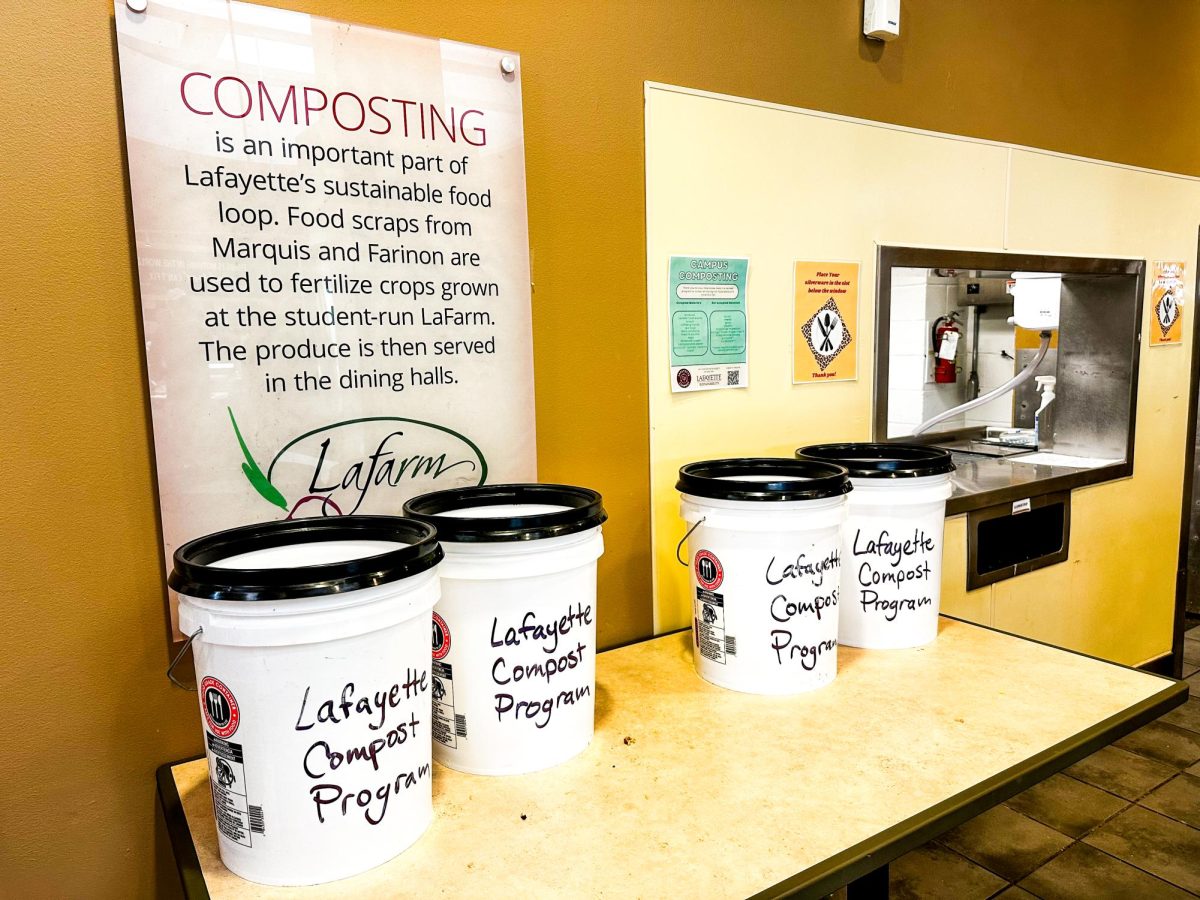After a three-year hiatus, composting has returned to campus. The renewed initiative marks the culmination of a series of discussions between the Office of Sustainability, Student Government, dining staff and college administrators.
While all parties agreed that composting should be brought back to the college, there were various opinions on the minutiae concerning the renewal of the program.
“It was logistics,” Delicia Nahman, the college’s director of sustainability, said. “It was a funding question. It was a timing question. I mean, there were a number of pieces that would really have to fall into place [to come to an agreement on how to proceed].”
During these discussions, Kaitlyn Hilley ’23, a former Student Government representative, sought not only to bring back composting but to extend the program’s scale by proposing a commercial composting facility. The administration and the Office of Sustainability agreed with the Student Government’s idea to replace the previous system: the deteriorating, decade-old Earth Tubs.
However, COVID-19 caused multiple delays to this new system. It wasn’t until the financial instability brought about by Covid had waned that the administration felt comfortable to give the green light.
“[The Office of Sustainability] said ‘Okay, let’s do our research,’ and that was when we started reaching out to other colleges and universities who had scaled up from the Earth Tubs,” Nahman said.
The college administration ultimately chose to fund the purchase of the Intermodal Earth Flow, a fully self-contained composting system repurposed from a shipping container. Nahman estimated that the vessel, site work and labor for installation all cost approximately $150,000, $15,000 of which will be allocated to paying student employees in the composting program.
While Hilley and Student Government’s plan was never fully developed, Melissa Adamson, the college’s climate action and circulatory manager, said she felt confident that Lafayette was one step closer to achieving its climate action commitments and waste diversion goal of 60 percent by 2035.
“[This year], our overall diversion percentage is twenty percent … [Composting] operations over this academic year are estimated to increase the diversion rate by around three percent,” Adamson said. “Expansion of [composting] coupled with waste minimization efforts and improving recycling has the potential to move our waste diversion even closer to the interim goal of forty percent diversion by 2030.”
To meet these goals, the dining halls will work to ensure enough food waste is collected.
“We meet with the Office of Sustainability on a regular basis and plan to continue those meetings,” Christine Blaha, the resident district manager for Parkhurst Dining, wrote in an email. “Close collaboration with the sustainability office is a priority for our entire team.”
Despite these goals, both students and the Office of Sustainability have noted concerns with the new composting system.
“I would say that consistency from Dining Services participation is one of the biggest challenges and contamination is the other biggest challenge,” Adamson said.
On the other hand, students have noticed different problems within the system. The new bins have often been unorganized, despite their positive intentions. Many bins in locations like Marquis have overflowed, while dishes and utensils have been found in the Upper Farinon bins.
“I think it was a good idea, but [dining] didn’t keep checking up on them,” Amy Fabara ’27 said. “At one point food flew up, and things were messy on the ground.”
Parkhurst and the Office of Sustainability plan to address these current challenges in addition to looking towards longer-term goals.
“We want to see expansion into how we can start collecting food waste from some special events, programming and from offices that are participating in the Sustainable Office Program,” Adamson said. “We also hope to incorporate Gilbert’s Cafe as a location where we are getting food waste from.”






































































































Joseph Witmer • Sep 9, 2023 at 1:26 pm
Fantastic article. It is obvious the students at Lafayette College want this to be successful.